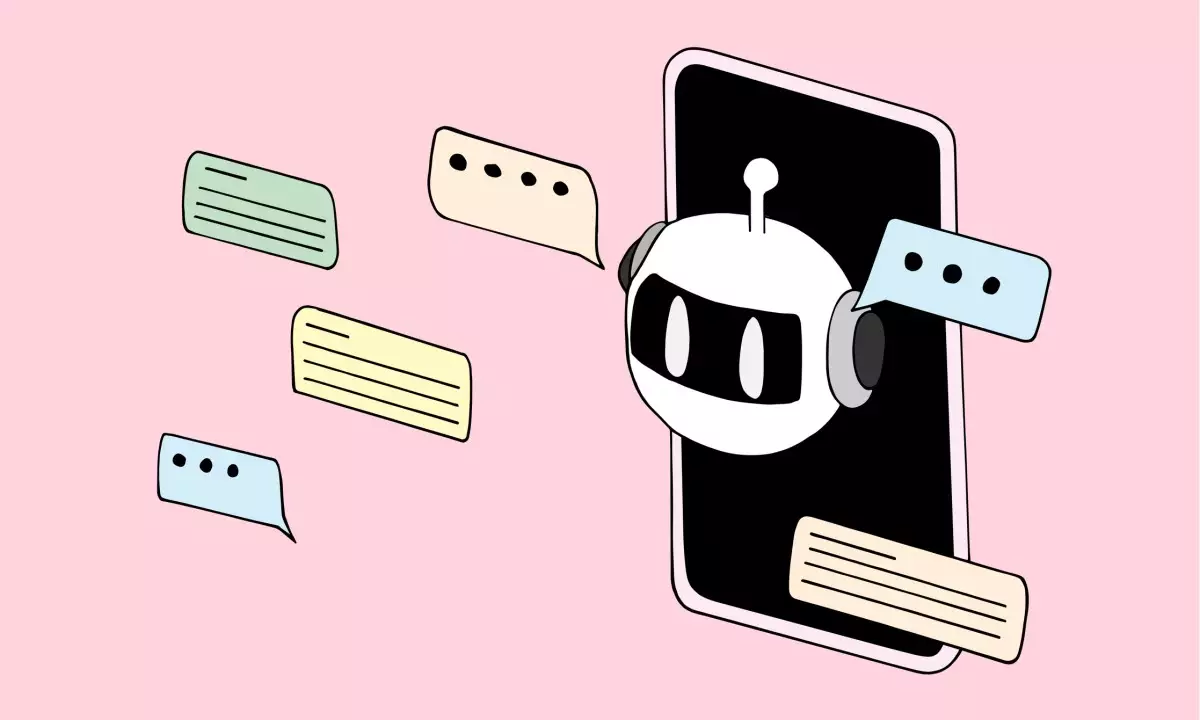As technology continues to evolve at a breakneck pace, generative AI has emerged as one of the most formidable developments of our time. However, a concerning trend has taken root in how these innovations are presented to the public: the injection of human names and personas into AI systems. The rationale behind this anthropomorphism is clear—it softens the often intimidating nature of technology and fosters a sense of trust among users. Yet, while this may curry favor with investors and hiring managers alike, it raises critical ethical and moral questions that we can no longer afford to ignore.
Moreover, numerous startups, especially those born from prominent accelerators such as Y Combinator, are marketing AI not as sophisticated software, but rather as full-fledged colleagues or replacements for human workers. It’s a telling pivot in the conversation around labor and productivity, as these companies sell the promise of AI as AI assistants, coders, and even managerial staff. This strategy is binding in its appeal, especially amid today’s constantly shifting job landscape and heightened economic uncertainty.
Dehumanization in the Name of Efficiency
As an instance, Atlog has recently advertised its “AI employee for furniture stores,” a tool designed to oversee everything from customer transactions to inventory management. The underlying message is crystal clear: businesses can reduce headcount while scaling operations. But the darker side of this narrative is often swept under the rug. What becomes of the human workers squeezed out of these roles? This question remains unsettlingly unanswered, reflecting a casual dismissal of human value in the face of automated efficiency.
Consumer-facing startups like Anthropic also follow suit, naming their product “Claude” in an attempt to render the AI less of a machine and more of a friend. This echoes a trend seen in the financial tech arena, where applications rebranded themselves as approachable companions to mask their transactional nature. When it comes to sharing sensitive personal information, who wouldn’t prefer to confide in “Claude” rather than an inscrutable algorithm? This branding strategy transcends mere marketing—it reshapes our relationship with technology in troubling ways.
A Tipping Point for Generative AI
Despite the initial excitement surrounding generative AI, there is a tangible sense of unease brewing beneath the surface. The more these technologies are anthropomorphized, the more dehumanizing they become, prompting concerns over their potential to displace real human jobs. Data shows a significant number of Americans remain unemployed, notably among tech workers, right as advancements in AI push further into the workforce. This presents a dilemma: while we embrace innovation, we must also grapple with its ramifications for everyday people.
Dario Amodei, CEO of Anthropic, has warned that advancements in AI could threaten up to half of entry-level white-collar jobs within five years. His prediction raises alarms about the broader societal impacts such widespread job displacement might cause. Tech workers and other professionals may not fully grasp the storm brewing on the horizon, leading to a collective disbelief in the urgency of the situation. But the consequences of accelerating automation can’t be ignored—they’ll reverberate throughout our economy.
Words Matter: The Power of Framing
The way we describe new technology holds significant weight. Companies like IBM understood this well enough when their systems were labeled as “mainframes” and not branded as “co-workers” or “assistants.” It was clear they were tools designed for specific productivity functions. Yet modern companies are challenged by a desire for more human-like branding, masking the true potential and purpose of these technologies.
We should advocate for software tools that foster and amplify human capabilities rather than replace or eclipse them. Let’s use language that empowers rather than diminishes. There’s a critical distinction between facilitating human productivity and presenting AI as substitute labor. We do not need more “AI employees” to masquerade as human workers; what we require are tools enabling real people to drive innovation, creativity, and progress in ways that automated systems can’t replicate.
Moving Forward: A Call for Thoughtful Innovation
This isn’t just a question of rhetoric; the manner in which we approach AI technology has profound implications for society at large. The unchecked rise of generative AI, marketed as an enticing solution to labor woes, could lead us down a path of economic stratification and human obsolescence. As we navigate this rapidly evolving landscape, it’s become imperative to cultivate a technology ecosystem that genuinely enhances human working environments instead of undermining them.
In a world increasingly dominated by generative AI, our focus should not rest on mechanizing workers into abstracted entities but rather on innovating tools that empower individuals to leave meaningful impacts in their roles. The key lies not just in what these technologies can achieve but in how we conceptualize and communicate them. The future of work should hinge upon enhancing human potential, not replacing it. Only by prioritizing this ethos can we ensure a brighter, more equitable collective future in the age of AI.

